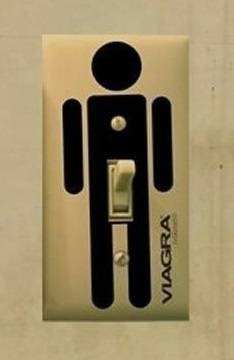They lie within the parameters set by the government.
Why do most advertisements and advertisers LIE about their products? Most items are not close to their claims.
What gets me is that the lies don't even have to be spoken. Has anyone EVER gotten a burger, Subway sandwich or any other food item that actually looked like the advertisement?
Dear JNicka,
I actually looked into this when I worked as a Realtor. It is called "puffery," and within certain limits it is actually legal. You are allowed to exaggerate the wonderfulness of your product for the sake of making a sale!
At least this was the case around 1980.
Like a soap, saying they are 99% pure!! They do not say pure what. So I must assume Ivory Soap is 99% pure Ivory Soap.. Wonder what the other 1% is.. This is not really telling a lie, it is just a distractor.
Not a direct answer to your question, but a couple of ads that stopped short of being truthful:
A few years ago Mitsubishi made a commercial showing three Sumo wrestlers trying unsuccessfully to squeeze into the cabin of a small truck. Then they showed them sitting comfortably in the cabin of a Mitsubishi. Looked convincing but I worked with the Japanese for 12 years and they don't all look the same to me. They'd substituted a smaller wrestler to fit him in.
Nike has a television commercial for hiking shoes that was shot in
Kenya using Samburu tribesmen. The camera closes in on the one tribesman
who speaks, in native Maa. As he speaks, the Nike slogan "Just do it"
appears on the screen. -- Lee Cronk, an anthropologist at the University of Cincinnati, says
the Kenyan is really saying, "I don't want these. Give me big shoes."
Says Nike's Elizabeth Dolan, "We thought nobody in America would know
what he said."
But for truth in advertising I guess that seeing is believing. Check out this Viagara ad:

Most of these companies will do and say almost anything to sell their product! So they claim that they have the best product available. It's all about the money ! $$$$$$$
That is a great question .. False advertising is against the law .. Yet, we see it in day to day things .. Like a restaurant menu with images of the dishes they serve, for example .. They write in there somewhere (in print that NO one can detect) that "images shown may not be actual representation of actual product" (or something similar) .. EVEN THOUGH there is a reasonable expectation of the representation .. To me .. THAT is false advertising.
"Exaggeration and embellishment can be used as long as one isn't trying to misrepresent the facts - as long as there is not an intention to fool someone into believing what is false." (Br. Francis Krautter)
I think that would allow puffery---as Virginia Lou mentioned in her answer.
And whenever I tell my wife she looks great instead of fine. (Or vice versa) what am I really saying?
And mashed potatoes are acceptable substitutes for ice cream in commercials because the real thing would melt under the lights before the picture could be taken.
And when is it party cloudy rather than partly sunny?
And if I say this car I'm now selling is a great car, what's necessarily wrong with that statement if you wind up not liking it?
Caveat emptor---the principle that the buyer alone is responsible for checking the quality and suitability of goods before a purchase is made.